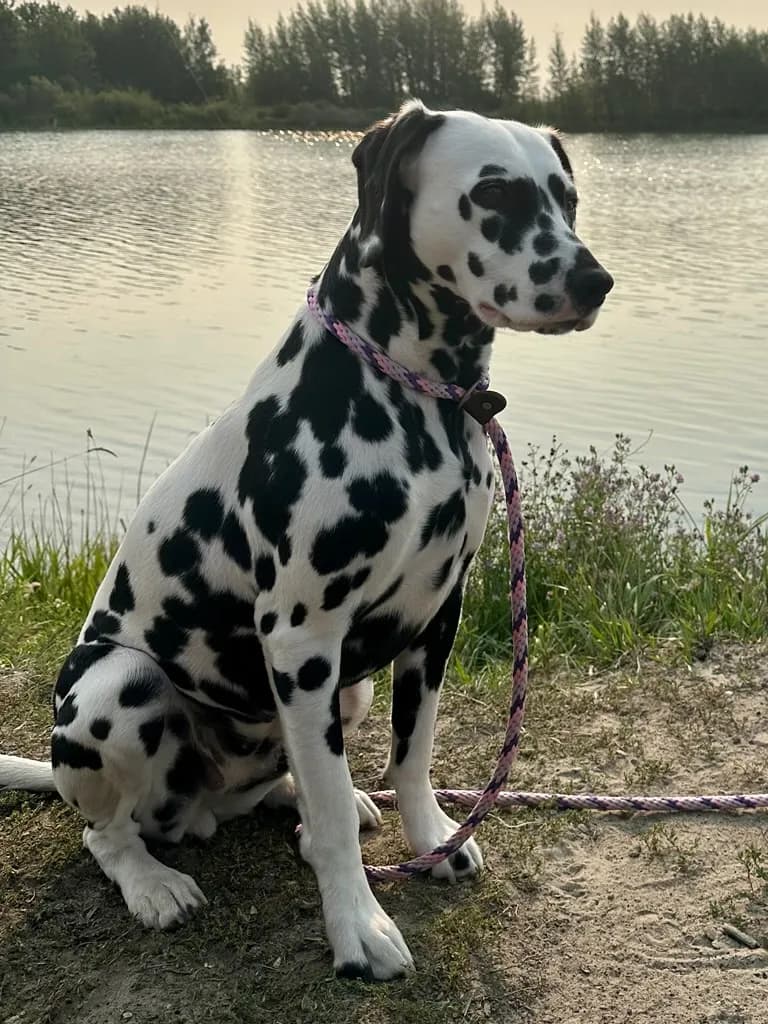Dalmatian

Height
Male: 48-61 cm, Female: 48-61 cmWeight
Male: 22-25 kg, Female: 22-25 kgPedigree
YesLifespan
13 to 16 yearsPros
- Loyal
- intelligent
- energetic
- playful
- good watchdog
- relatively clean (short coat)
- affectionate with family.
Cons
- High energy
- shedding
- potential for deafness
- can be stubborn
- requires consistent training
- prone to certain health issues (urate stones
- allergies)
- needs lots of exercise
- can be destructive if bored
- may not be suitable for apartment living
- potential for aggression with other dogs (especially same-sex)
- requires early socialization.
Introduction to the Dalmatian
The Dalmatian is a well-known dog breed, famous for its distinctive spotted coat. Originating from the Dalmatia region of Croatia, these dogs are intelligent, active, and make excellent companions for the right owner.
Historically used as carriage dogs, Dalmatians have a strong affinity for horses and enjoy being part of an active lifestyle. Their elegant appearance and friendly nature have made them popular pets and even iconic symbols in popular culture.
History of the Dalmatian
The exact origins of the Dalmatian are somewhat debated, but they are believed to have originated in Dalmatia, a region of Croatia. They have a long history of working alongside humans in various roles.
Throughout history, Dalmatians have been used as carriage dogs, guarding livestock, hunting, and even as circus performers. Their versatility and stamina made them valuable assets in a variety of settings. The Dalmatian’s association with firehouses began in the days of horse-drawn fire engines, where they were used to run ahead of the horses, clearing a path and guarding the equipment.
The breed gained further popularity in the 20th century thanks to the Disney film "101 Dalmatians," which brought them into the spotlight as beloved family pets.
Interesting facts about the breed
- Dalmatians are born without spots; they develop as they mature.
- They require a lot of exercise and mental stimulation to stay happy and healthy.
- Dalmatians are prone to deafness, so responsible breeding practices are essential.
- They have a strong bond with their families and can be protective.
- Their spotted coat patterns are unique to each individual dog.
- Dalmatians were once known as the "Plague Dogs" because they were used to accompany horse-drawn carriages to prevent the spread of disease.
Characteristics
Apartment Suitable
Beginner Friendly
Hardiness
Independence
Tolerates Cold
Tolerates Hot
Friendliness
Affectionate With Family
Kid Friendly
Dog Friendly
Stranger Friendly
Grooming
Shedding
Drools
Ease of Grooming
Health
Gains Weight
Ease Of Training
Intelligence
Prey Drive
Vocality
Wanderlust
Need for Attention
Activeness
Intensity
Excercise Needs
Are you looking to buy the Dalmatian breed?
See current available pets or share this breed with your friends!